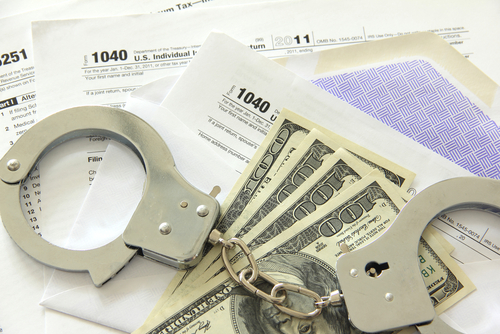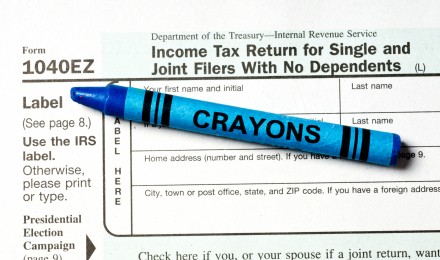The United States tax system is a complicated one and, unfortunately, many people try to cheat the system and pay less than what is required. The government makes every effort to identify tax cheats through random as well as targeted audits, and charges both back taxes and penalties against people who don’t pay what they are required to pay. Intentional evasion of taxes can also lead to criminal charges. However, due to the sheer number of tax payers and the sheer number of ways to evade taxes, the government cannot catch everyone.
In an effort to find more tax cheats and to collect all of the taxes due, the government and Internal Revenue Service has incentives in place that are intended to encourage average citizens to turn in tax evaders. If you know of a tax cheat, you may be able to take advantage of these incentives to collect a portion of the money that the IRS recovers.
Turning in Tax Evaders
The Internal Revenue Service has two programs in place to reward people who turn in tax cheats. Referred to as “whistleblower” programs, the first is for smaller cases where more than $2 million in back taxes and penalties are recovered. If you turn in someone under this program, you may be able to collect as much as 15 percent of the taxes recovered (although sometimes you will collect less). If you turn in a tax evader and more than $2 million of back taxes are recovered as a result, you may receive as much as 30 percent of the proceeds from the money that the IRS collects.
In order to actually receive these awards, however, the IRS has to pursue the lead that you give them. Typically, this means you will need to provide a lot of information to get the IRS interested in launching an investigation. This information needs to be “specific and credible” and you have to provide the IRS with specifics showing that tax evasion has occurred. Not only that, but the information that you provide to the IRS must have been legally obtained in the course of doing business.
You also need to be aware that the protection available to IRS whistleblowers is limited. While the IRS may try to protect your identity, there is no guarantee that the person you are reporting will not find out that you are blowing them in to Uncle Sam. There are also no protections against retaliation on the part of your employer, so if you report that your boss is a tax cheat and you get fired, the IRS and government is not going to step in to protect your job.
Finally, if you were involved in some way in the tax evasion or assisted in the scheme, then you may face criminal prosecution for your part in defrauding the government. This criminal prosecution, and even a criminal conviction, will not preclude you from being paid your whistleblower money if the IRS is able to recover funds. In some cases, however, the IRS award that is paid out to you as a whistleblower will be reduced if you were part of the wrongdoing that led to the tax evasion.
Is Turning In Tax Cheats a Good Idea?
If you believe that you have evidence of tax fraud and you want to try to recover some money under whistleblower awards, you can complete IRS Form 211 to get the ball rolling. However, you need to be aware of the risks involved and you need to be aware that the IRS has great discretion in whether to take the case and how much to pay out. This means that you need to be sure it is worth the risk before you jump in and start reporting friends, relatives, co-workers and neighbors to the IRS for any tax wrongdoing that they might be committing.
The United States tax system is a complicated one and, unfortunately, many people try to cheat the system and pay less than what is required. The government makes every effort to identify tax cheats through random as well as targeted audits, and charges both back taxes and penalties against people who don’t pay what they are required to pay. Intentional evasion of taxes can also lead to criminal charges. However, due to the sheer number of tax payers and the sheer number of ways to evade taxes, the government cannot catch everyone.
In an effort to find more tax cheats and to collect all of the taxes due, the government and Internal Revenue Service has incentives in place that are intended to encourage average citizens to turn in tax evaders. If you know of a tax cheat, you may be able to take advantage of these incentives to collect a portion of the money that the IRS recovers.
Turning in Tax Evaders
The Internal Revenue Service has two programs in place to reward people who turn in tax cheats. Referred to as “whistleblower” programs, the first is for smaller cases where more than $2 million in back taxes and penalties are recovered. If you turn in someone under this program, you may be able to collect as much as 15 percent of the taxes recovered (although sometimes you will collect less). If you turn in a tax evader and more than $2 million of back taxes are recovered as a result, you may receive as much as 30 percent of the proceeds from the money that the IRS collects.
In order to actually receive these awards, however, the IRS has to pursue the lead that you give them. Typically, this means you will need to provide a lot of information to get the IRS interested in launching an investigation. This information needs to be “specific and credible” and you have to provide the IRS with specifics showing that tax evasion has occurred. Not only that, but the information that you provide to the IRS must have been legally obtained in the course of doing business.
You also need to be aware that the protection available to IRS whistleblowers is limited. While the IRS may try to protect your identity, there is no guarantee that the person you are reporting will not find out that you are blowing them in to Uncle Sam. There are also no protections against retaliation on the part of your employer, so if you report that your boss is a tax cheat and you get fired, the IRS and government is not going to step in to protect your job.
Finally, if you were involved in some way in the tax evasion or assisted in the scheme, then you may face criminal prosecution for your part in defrauding the government. This criminal prosecution, and even a criminal conviction, will not preclude you from being paid your whistleblower money if the IRS is able to recover funds. In some cases, however, the IRS award that is paid out to you as a whistleblower will be reduced if you were part of the wrongdoing that led to the tax evasion.
Is Turning In Tax Cheats a Good Idea?
If you believe that you have evidence of tax fraud and you want to try to recover some money under whistleblower awards, you can complete IRS Form 211 to get the ball rolling. However, you need to be aware of the risks involved and you need to be aware that the IRS has great discretion in whether to take the case and how much to pay out. This means that you need to be sure it is worth the risk before you jump in and start reporting friends, relatives, co-workers and neighbors to the IRS for any tax wrongdoing that they might be committing.







